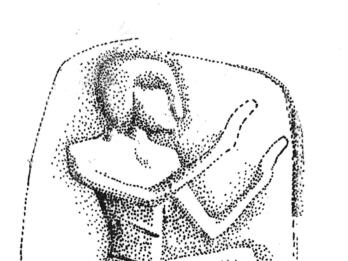Ancient Israelite Blessings and Curses
Blessings and curses were potent manifestations of the power of words.
Blessings and curses were taken seriously in the ancient world; uttering them was thought to have real force that could affect the person being blessed or cursed. God was the ultimate source (expressed or implied) of blessings and curses, both when God blessed or cursed someone and when the curse or blessing came from human lips. Nowhere is this clearer than in the story of Balak, the king of Moab, and Balaam, a diviner (Numbers 22–24). King Balak commissioned Balaam to curse Israel, but Balaam, who listened to God, blessed the people of Israel instead, much to Balak’s consternation.
Exodus 21:17 forbids cursing (“reviling,” the same Hebrew word) parents on penalty of death, and Exodus 22:27 prohibits reviling God or cursing a leader. In 1 Kings 21:10, Naboth is falsely accused of reviling God and the king, a treasonous offense punishable by stoning. Blessings and curses often appear at the end of legal texts and covenants, both to motivate obedience and to deter disobedience; good fortune will come to those who obey their provisions and misfortune to those who do not. Likewise, monuments or tomb inscriptions may contain a curse directed at anyone who damages or usurps the monument or opens the tomb to rob it or disturb the body (see The Tomb Inscription of the Royal Steward). The legal formula for taking an oath implies that the person who swears falsely or fails to fulfill the oath will be cursed. In a nonlegal context, the speaker in Psalm 7:4–6 wishes misfortune upon himself if he has done wrong, declaring before God that he should be overtaken by his enemy if he has mistreated others. Sometimes the fate of an earlier exemplar, either fortunate or unfortunate, is invoked in a blessing or curse. Thus, Jacob blesses his grandsons Ephraim and Manasseh by declaring, “By you shall Israel invoke blessings, saying: ‘God make you like Ephraim and Manasseh’” (Genesis 48:20). Proverbs 10:7 refers to this practice. Sometimes translated as “The memory of the righteous shall be for a blessing,” it more likely means “The name of the righteous is invoked in blessing.” In contrast, the prophet Jeremiah curses the false prophets Zedekiah and Ahab by saying that “the whole community of Judah in Babylonia shall use a curse derived from their fate: ‘May God make you like Zedekiah and Ahab, whom the king of Babylon consigned to the flames’” (Jeremiah 29:22). People often inscribed blessings for themselves—that is, prayers asking for a blessing—on objects they dedicated to sanctuaries (see Inscribed Limestone Basin). Or they would scratch blessings or curses on the walls of caves, perhaps while hiding from enemies, or when undertaking other mundane activities, such as travel.
Though taken seriously, blessings (but not curses) came to be used more casually for greeting and leave-taking, as when the reapers and Boaz exchange greetings (Ruth 2:4) and when Rebekah is blessed as she leaves her own family to join Abraham’s (Genesis 24:60). Likewise, letters often begin with a greeting such as “I bless you to YHWH.” It is sometimes difficult to know when a blessing or curse retains its full force and when it is simply a form of politeness or insult.
In many prayers, humans bless God as an expression of praise or thanks. God may also be praised in a blessing given to a human. When the women of Bethlehem say to Naomi, “Blessed [barukh] be the Lord, who has not withheld a redeemer from you today” (Ruth 4:14), they are praising God for providing the child who will enable the continuation of Naomi’s family. However, some blessings of God are actually locutions for blessing humans, as in Genesis 9:26, “Blessed be the Lord, the God of Shem,” which actually means “Blessed be Shem.” Similarly, “Blessed is He who enlarges Gad” (Deuteronomy 33:20) is a blessing for Gad.
God and humans are the primary recipients of blessings and curses, but they are not the only ones. Both Jeremiah (20:14–18) and Job (chapter 3) curse the day of their birth, wishing, thereby, that they had never been born. God curses the ground because of Adam’s sin (Genesis 3:17), and after the Flood, God promises never again to curse the earth (Genesis 8:21).
Ancient Israelites also sought to secure blessing and security by means of magical amulets. Some amulets were images of deities and other supernatural beings, such as the Egyptian goddess Isis, the minor Egyptian deity Bes, and the Mesopotamian demon Pazuzu. Other amulets were texts with apotropaic content, such as an amulet from Ketef Hinnom that contained the Priestly Benediction from Numbers 6:24–26 and other biblical verses.


